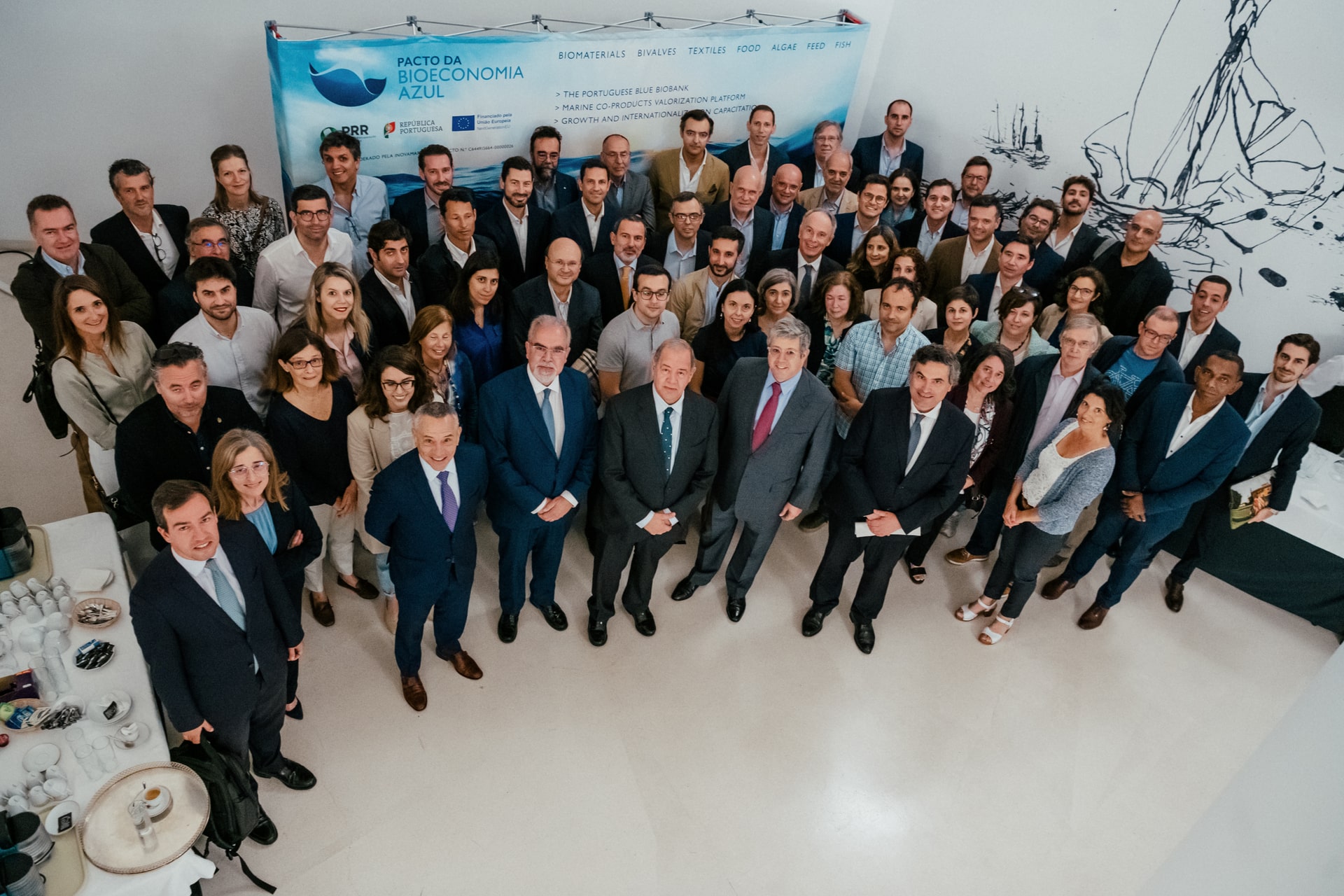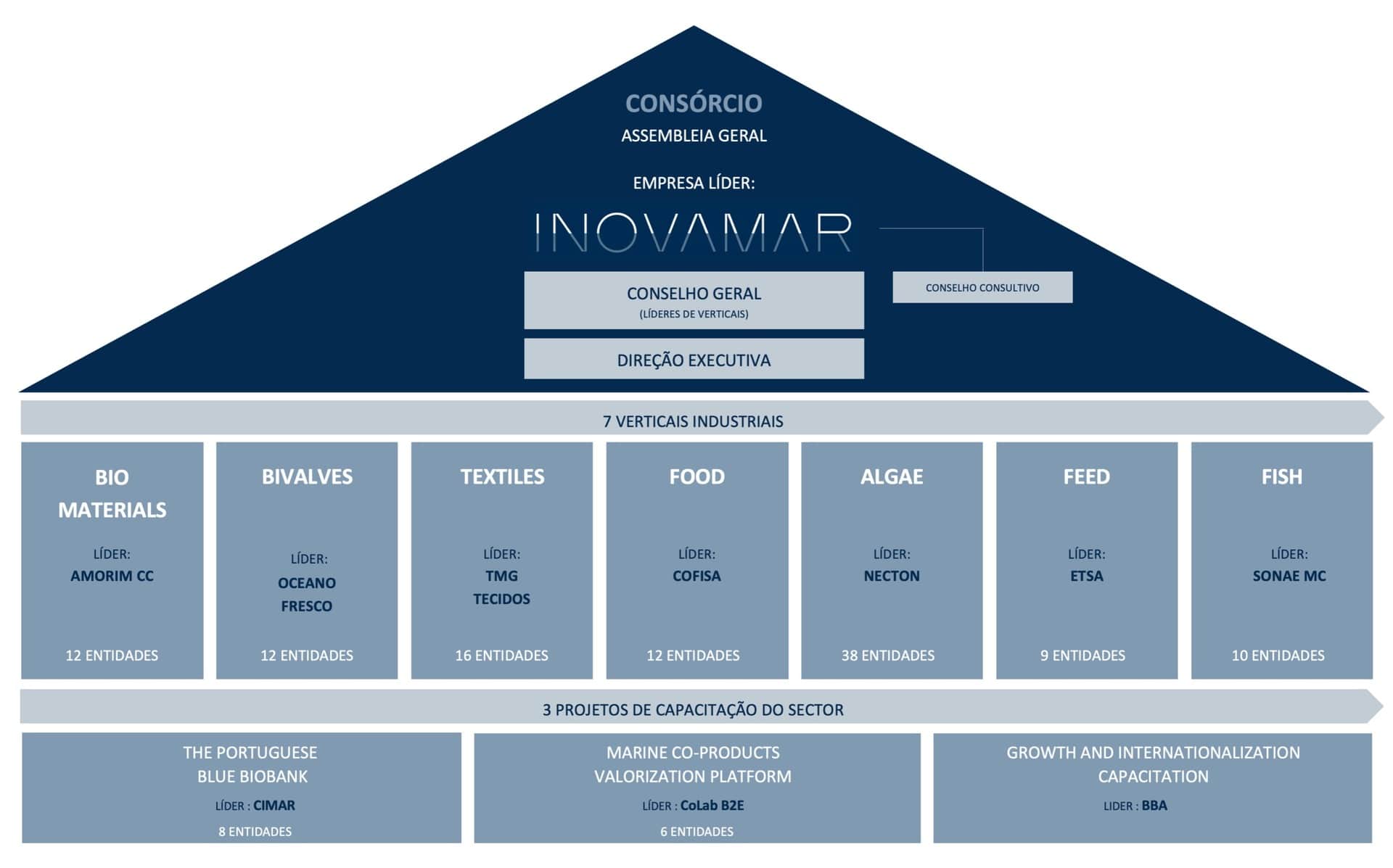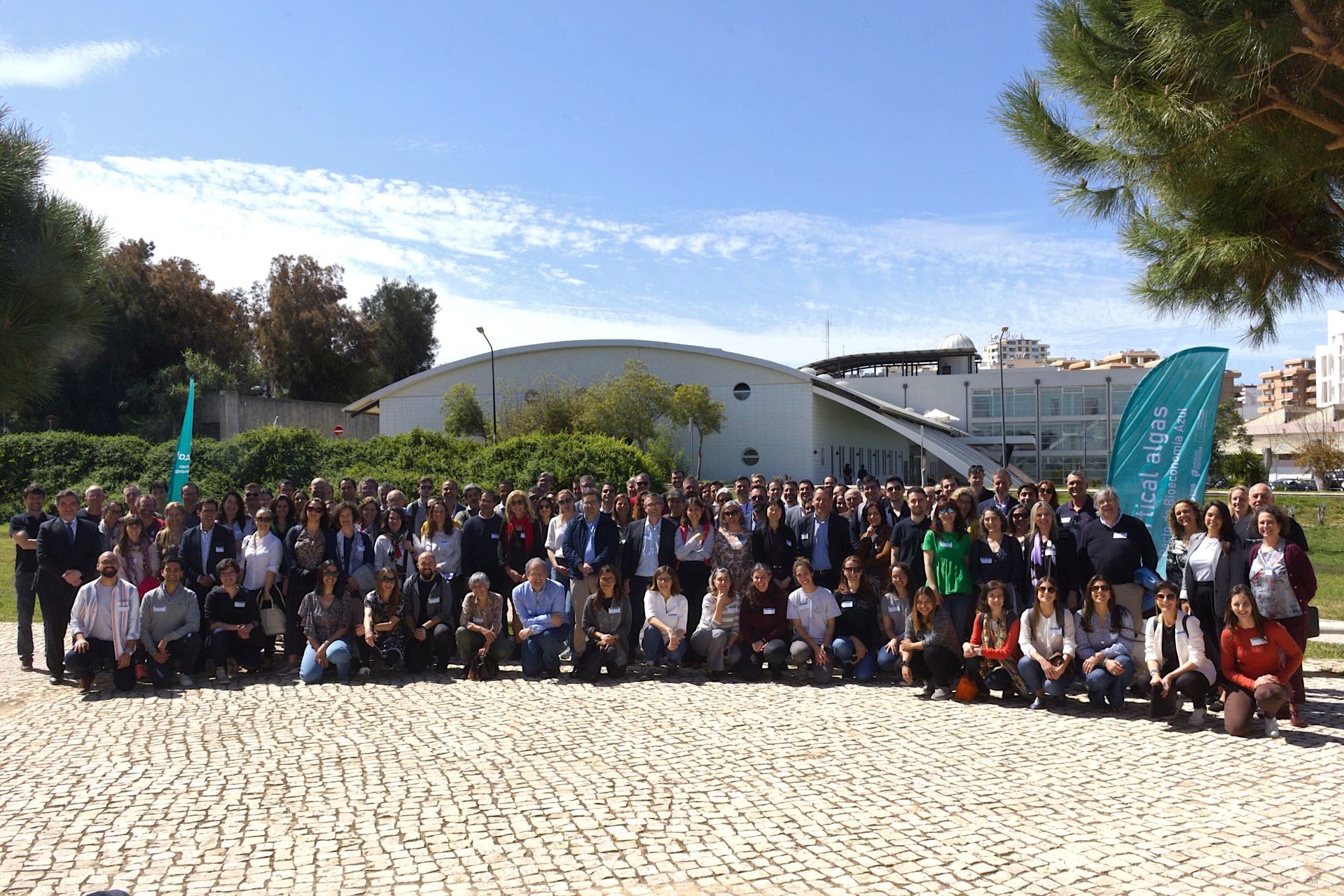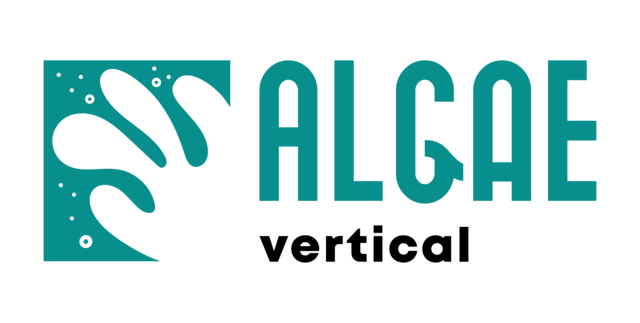Blue Bioeconomy Pact

The Blue Bioeconomy Pact emerged from a submission to the Mobilizing Agendas for Business Innovation, in the Recovery and Resilience Plan (RRP). In order to boost the blue bioeconomy sector, the Oceano Azul Foundation established the Blue Bioeconomy Platform.
Considering the distinctive, multidisciplinary, and disruptive nature of Blue Bioeconomy Pact, a new company called Inovamar was formed to lead it. The shareholding structure of Inovamar is shared by leading companies in various industrial sectors, including Oceano Fresco, Amorim Cork Composites (part of the AMORIM Group), Cofisa, ETSA (part of the SEMAPA Group), TMG, MC Shared Services (part of the SONAE Group), and Necton, as well as the Francisco Manuel dos Santos Society.
Inovamar is the leading company in the consortium and is responsible for liaising with the managing entities of the RRP, particularly IAPMEI. In this role, it serves as the connecting company between the 83 consortium members and the government. While fulfilling its leadership function, Inovamar coordinates with the leaders of work packages within the governance model of this Bue Bioeconomy Pact in various communication and consortium management activities.

Resulting from one of the PBA’s 7 investment sectors, WP5 (Algae Vertical) involves a total of 38 entities, and aims to provide the national algae sector with the necessary capacity and competitive advantages, based on new products, processes and sustainable services, to compete in global markets and raise the national brand in the European blue bioeconomy.
More specifically, the objectives of this WP are:
- Develop more sustainable and digitized production processes that result in increased productivity and cost reduction;
- Develop more sustainable biomass harvesting, drying and processing/biorefining processes that leverage blue biotechnology to source new high-value ingredients and value chains;
- Develop innovative algae-based applications for the nutraceutical and cosmeceutical markets, ready-made meals and novel foods for human consumption, new functional foods for aquaculture and the development of new agricultural solutions (i.e. biofertilizers, biopesticides and microbiota stimulants);
- Evaluate the necessary legal requirements for the approval of new products and processes and their introduction in the market.

